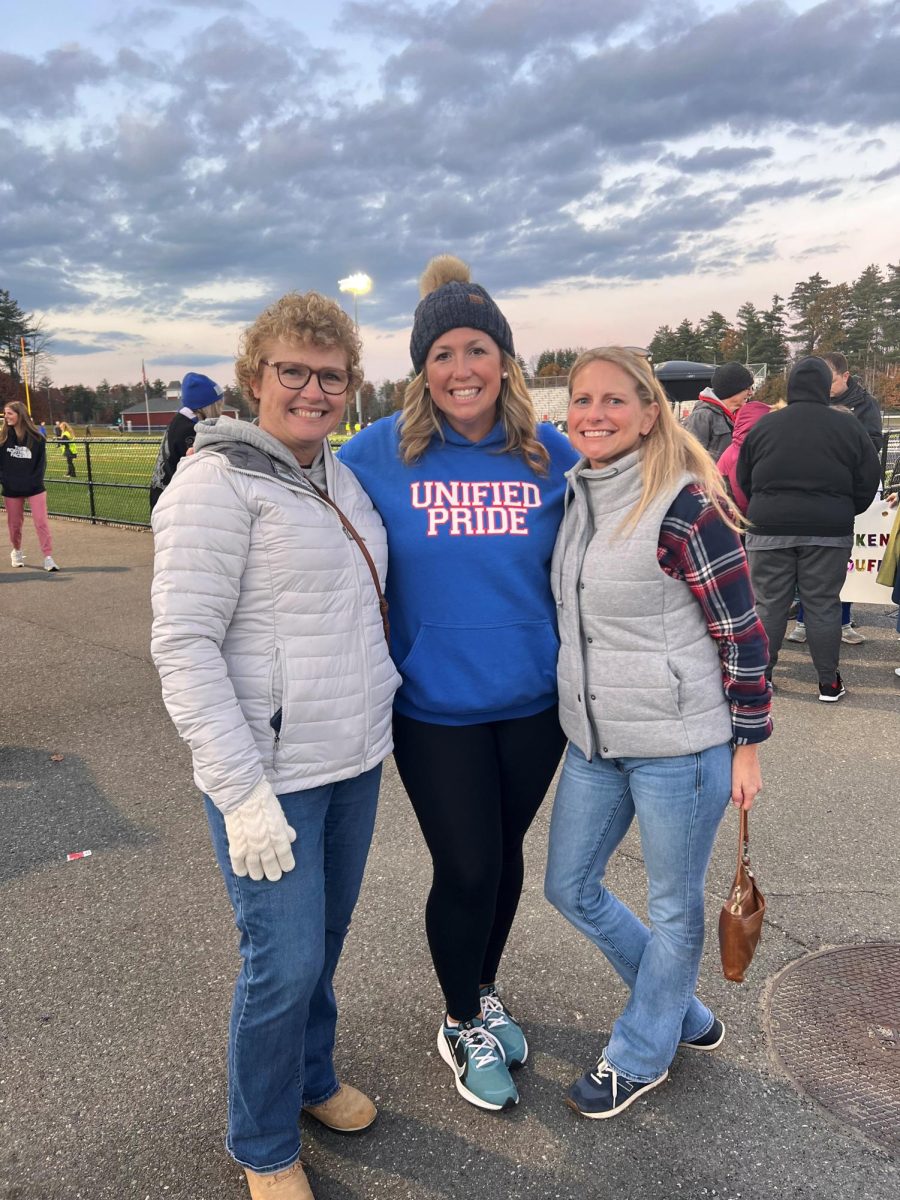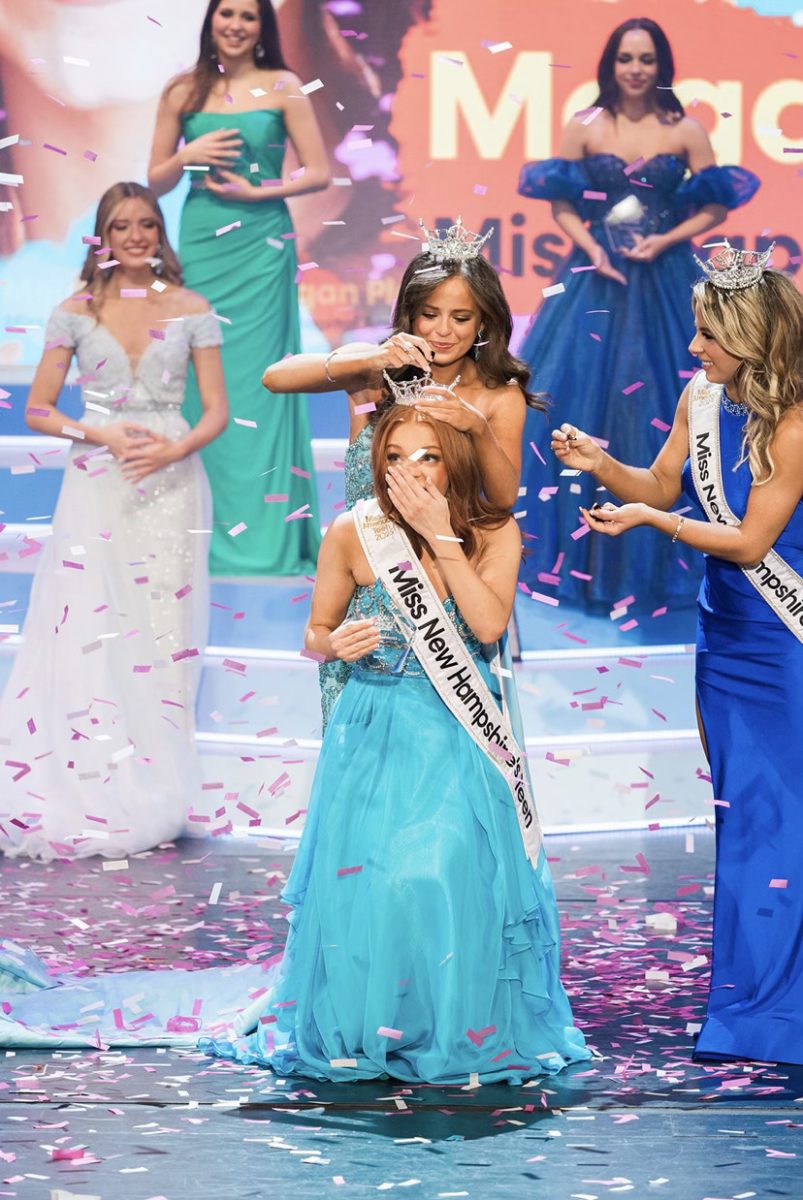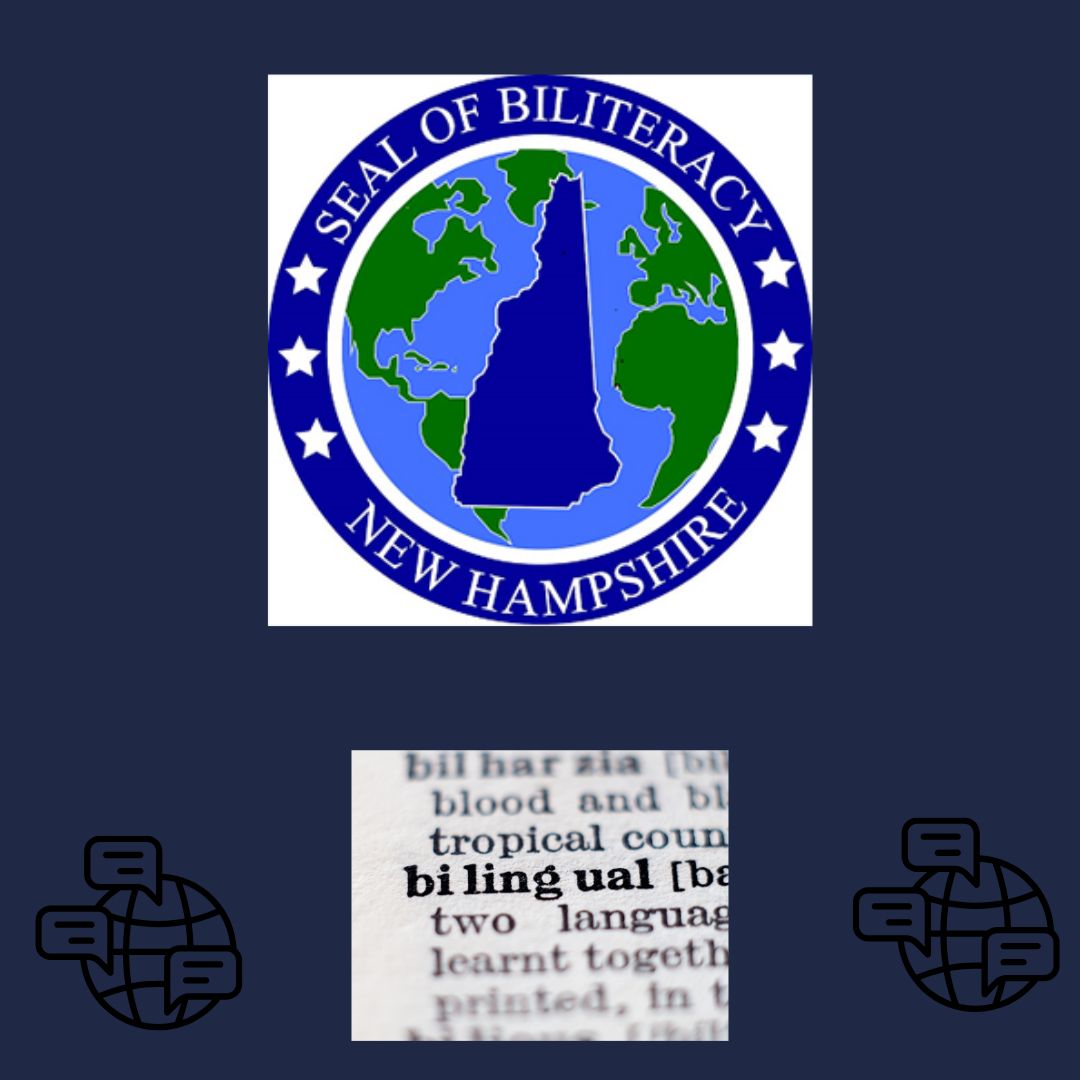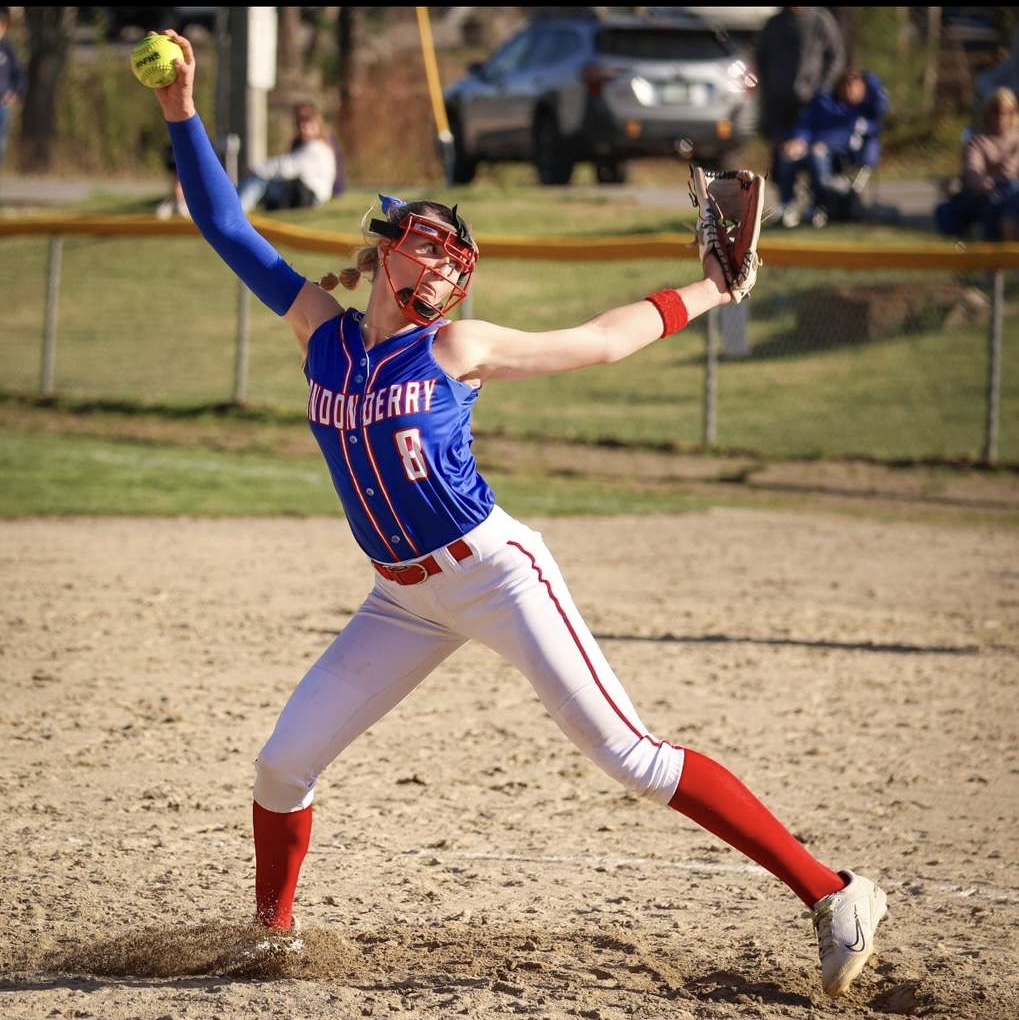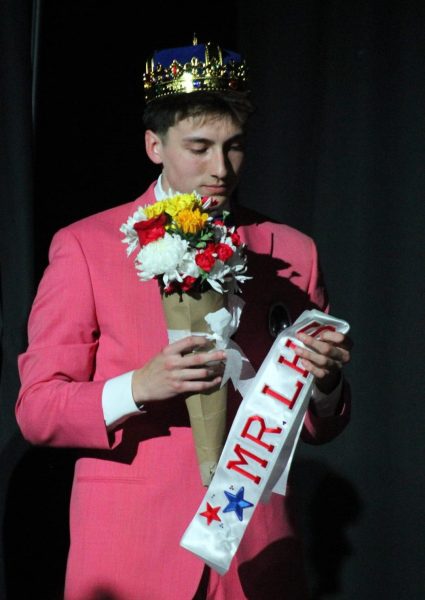After a wild weekend of fierce competition at the Granite State District event, the LHS robotics team has come out in 2nd place in the alliance standings. Along with this placement, the team also participated in a record-setting match at the time of the competition.
From ranking as first seed in qualifying matches and 15th in the world as of Sunday, March 3, the team has immensely improved over recent years in competitive action and has effectively put themselves back on the world stage.
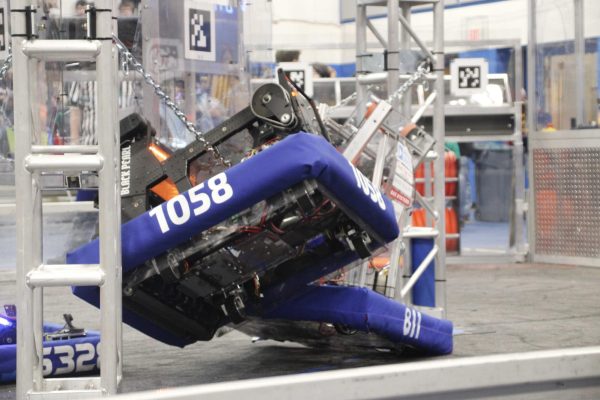
“It felt kind of surreal,” senior team captain Brendon Saranich said. “I still remember the days freshman year when we would have two students at meetings, and to see the team grow so much is amazing. The high points were just so incredible, we almost broke the world record, and actually set the event high score.”
GSD, or the Granite State District event, in the First Robotics schedule is an important week one event that kicks off the season for the numerous teams in the New England Division. For the 2024 season, this competition in particular was extremely competitive, with six out of the top 12 teams in New England. For an organization that spans that majority of the world, there are thousands of teams all fighting for the top spots, and to be able to secure a top spot is an extremely important part of qualifying for the world championship and securing sponsorships.
“Being one of the top teams in the world still feels unbelievable,” Saranich said. “I know we built this amazing machine, but it’s still doing so much better than I ever imagined.”
One extremely important topic to note from this event is something that happened in one of the later matches in the competition, specifically the match that put the team off of the win. with a score of 96 to 105, this match is tied at the 7th-highest-scoring match this year, almost three weeks after it took place. Due to robots getting better as the season progresses, this match was an incredible feat for both sides at the time and even now.
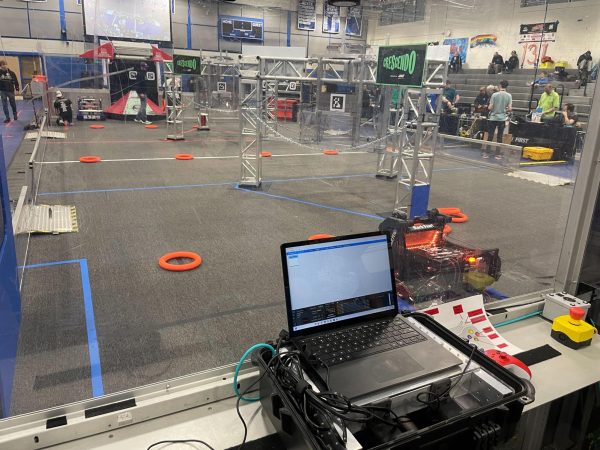
As a clarification, seeding first in qualifiers does not mean that the event has been won or lost. It means the team with the highest rank at the end of qualifying matches has the right to choose their first alliance partner before the other alliance captains. Alliances are a very important part of First Robotics and is what makes it unique compared to other competition formats.
Instead of teams competing one-on-one in the matches, teams are randomly selected into temporary partnerships of three during qualifiers to play the matches with allowance for strategy and cooperation.
Once qualifiers are over, the top eight teams are then able to pick teams to be within the finals bracket, starting at the top and working down to the eighth seed for first-team selections, and then winding back up to the top to keep selections as equal as possible.
“Placing first in qualifiers was a huge high,” sophomore Ben Simpson said. “Although placing first in qualifiers gave us first pick (a big advantage), the second place team rejected our offer, which ultimately led to our defeat in the finals.”
For the LHS Robotics Team, known to the First community as Team 1058, or better yet the PVC Pirates, seeding first allowed them to pick the teams of their choice, which allowed for their alliance to go undefeated in the double elimination-style bracket, beating the alliance they were eventually surpassed by in the process. Whether it was fighting hard all weekend or the drive of the other alliance, finals did not go to plan for the Pirates, and although they were defeated, coming in second place out of the 35 teams present was quite the accomplishment for the first event.
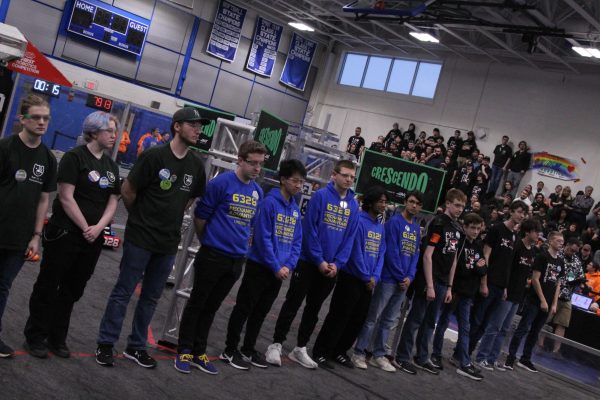
“It is unfortunate that we lost in the finals,” Simpson said. “I feel we had a good shot. (It was) definitely a low. I’m super excited for the rest of the season. We’re always working on new improvements, on the code side of things we will be working on new autos and other features.”
Speaking of improvements, another point of victory for the team during the event was winning the autonomous award for the event. At the beginning of every match, there is a 15-second period where the robots must operate themselves with no driver or operator input. With an extremely consistent “four-piece” autonomous coded by Sean O’Donnell, a member of the programming team, the team was able to score high while also impressing the judges massively.
“At first I was surprised since it was a simple routine, but I remembered the time I spent with the drive team and programming team at the practice fields at WPI and in Salem,” O’Donnell said. “All the refinements we had made to the routine allowed us to get the consistency we wanted and I’m proud of the final result. Actually, I can’t say it’s the “final” result as we are already working on improvements for URI.”
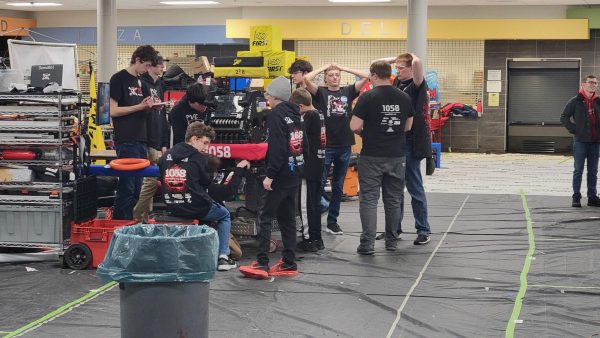
Going into the next competition at the University of Rhode Island, the team has high hopes of performing at an even higher level than before. By fixing previous issues from GSD, such as intake roller buildup from the urethane tubing on the floor spindle, they will be able to secure the reassurance of a working robot. Developing strategy by looking at how other teams have played in previous matches will also be a vital part of becoming a better team, as predicting the strategy of the other alliance will allow for compliance with how the teams can operate to win the match.
“Since URI is so close, we aren’t doing a ton, but we also don’t need to,” Saranich said. “There were some minor mechanical fixes to keep things running smoothly, but that was all done in a night. Now our big thing is to prepare new batteries, then practice. We’re hoping to have more autonomous choices and get the robot going faster, plus I think we solved the power problem so the top speed should increase.”



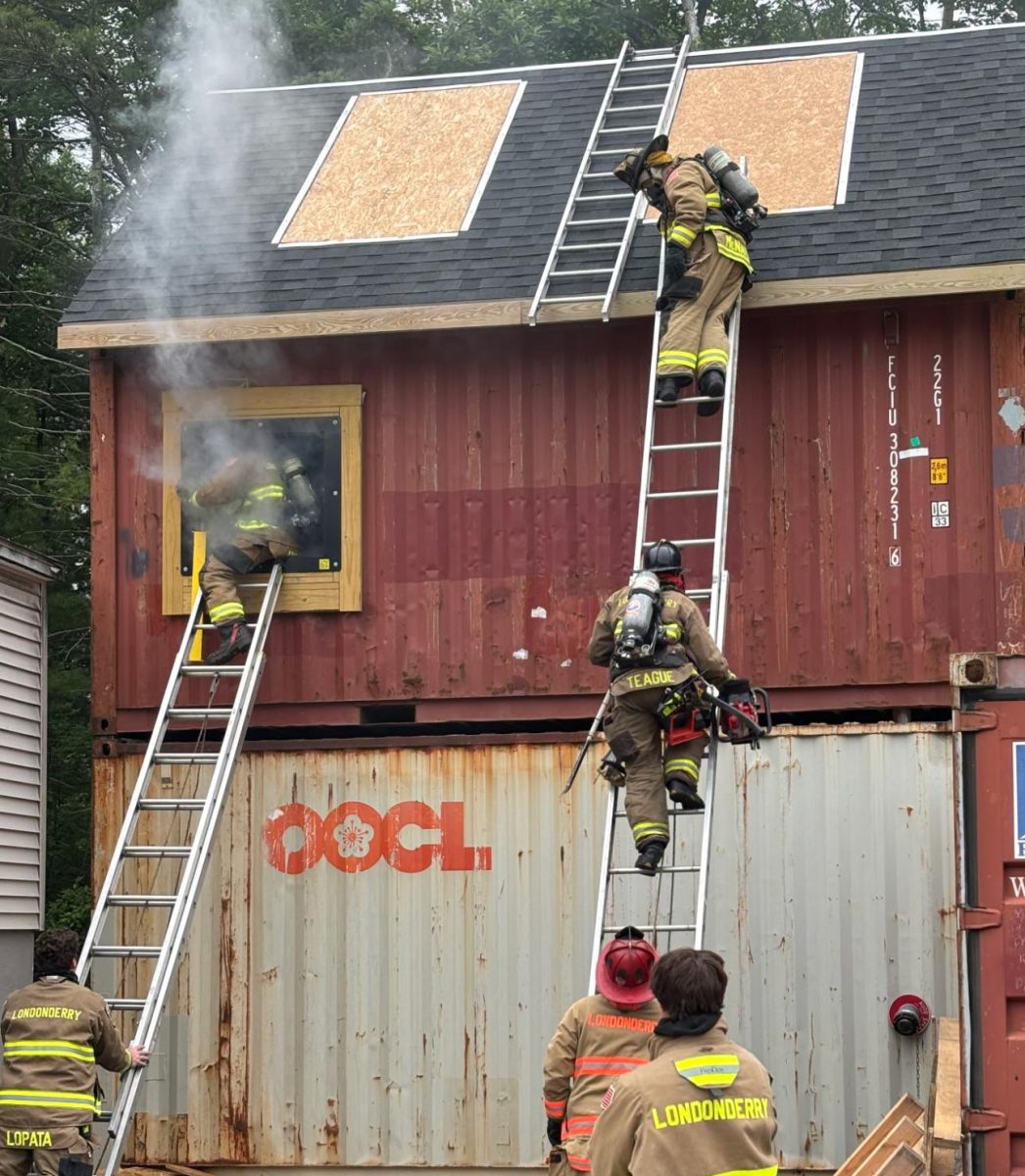
![Carol Ritchie helps one of her students through a computer assignment during A period. Ritchie has taught students basic English with activities to help them get a better grasp of concepts. problem-solving skills in her classroom. “I try to make the class fun and find [activities] that interest them,” Ritchie said.A banner of the world map and flags hangs near ESOL teacher Ms. Ritchie’s desk. (Image made in Canva by Kelsey Sweet).](https://www.lancerspiritonline.com/wp-content/uploads/2025/06/Light-Green-Featured-Jewelry-Instagram-Post.jpg)
